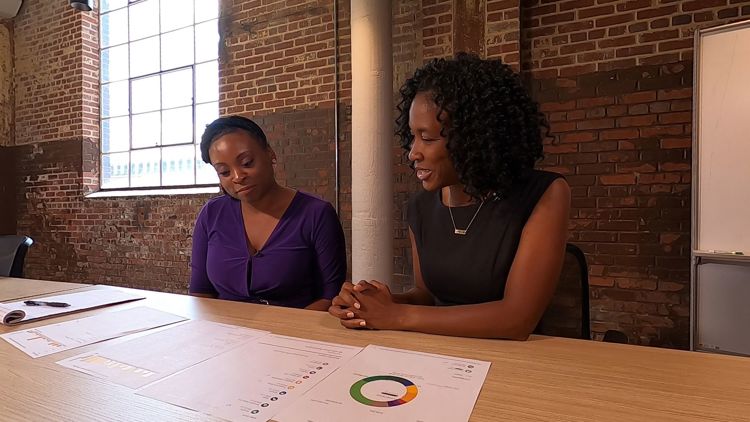GREENSBORO, N.C. — If anyone knows how to stretch a dollar, it’s Financial Literacy Expert Ja’Net Adams. She’s made a career out of helping others pay off debt.
“How I got into the work that I’m doing now is being in $50,000 of debt and being laid off with a one-year-old at home,” Adams said. “I said my first child was born into debt. My second child would not be, and she wasn’t.”
With strict discipline, Adams said she was able to pay off all her debt in just two years.
“It’s just about taking it one step at a time,” Adams said. “Save $5, save $10, and pay off $30 of a debt, whatever it may be just start, that’s what’s going to make it easier.”
According to the U.S. Department of Labor, 77% of American households have at least some form of debt with the average household roughly $104,000 in the hole. Reports show it takes the average American 20 years just to pay off their student loan debt. That doesn’t even include credit cards or their mortgage.
The “No-Spend Challenge” is a viral trend gaining popularity on social media. It involves going as long as possible without spending money on non-essential items. Many have taken the challenge to fight back against inflation and the increased cost of everyday items.
I asked Adams if there were any negatives to doing a “No-Spend Week.”
“I would say the negative of doing a no-spin week is splurging after the no-spin week is over,” Adams said.” So, before you start your no-spend week, month, or year, say to yourself, where do I want this money to go? Where would this money make the most impact in my life?”
But how realistic is it to go days on end without swiping that piece of plastic?
With the help of Adams, I mapped out a no-spend week with the hopes of cutting back on my biggest expenses…. dining out and shopping/entertainment.
Lauren Mardeusz is a registered dietitian. She tells me, that one of the best ways to save on food during a no-spend week is to cook meals with ingredients that are already in your kitchen.
“Lowering your expectations a bit and understanding that we might not be eating as high bar as we would when we’re spending $125 a week on groceries,” Mardeusz said. "Maybe we’re looking at something that’s more like oatmeal from the pantry with some walnuts and dried fruit for dinner instead of for breakfast.”
I asked Mardeusz what staples should always be kept in my fridge and pantry.
“Having things like dried goods are good to have on hand,” Mardeusz said. "Things like oats, rice, and dried beans. They’re shelf-stable. Things like noodles are really good for getting something in a pinch. Keeping frozen veggies is also a great thing to have on hand.”
During my no-spend week, I was able to make these simple meals:
- Rice, beans, and grilled chicken with a side of cooked frozen veggies
- Rice with ground turkey and a side of brussels sprouts
- And Greek yogurt topped with frozen fruit and honey
It was easy to not spend money on entertainment during my no-spend week.
For those looking for something to do without spending a dime consider the following:
- Check out a book or movie at your local library. Some even offer video streaming services at no charge.
- How about a walk along the Greenway or one of the thousands of hiking trails in North Carolina?
- For museums that have a cover charge, visit their website to see if they offer days you can visit without paying admission.
At the end of the day, you don’t have to spend money to have fun.
Though, I may have been tempted to go through the drive-through for my favorite latte and a pup cup for my dog, a no-spend week, month, or even year is possible, as long as you plan and give yourself grace.
“People just need to remember their why,” Adams said. “That’s all this is. If you have those dreams, you have that why in front of you. When hard times come, you’ll handle that hard time and get right back on that horse and keep riding. It’s so very important to keep that why in front of you.”
In addition to paying off debt, Adams recommends using money saved for an emergency fund or contributing to retirement.



